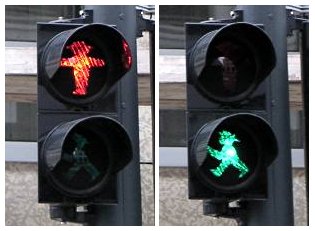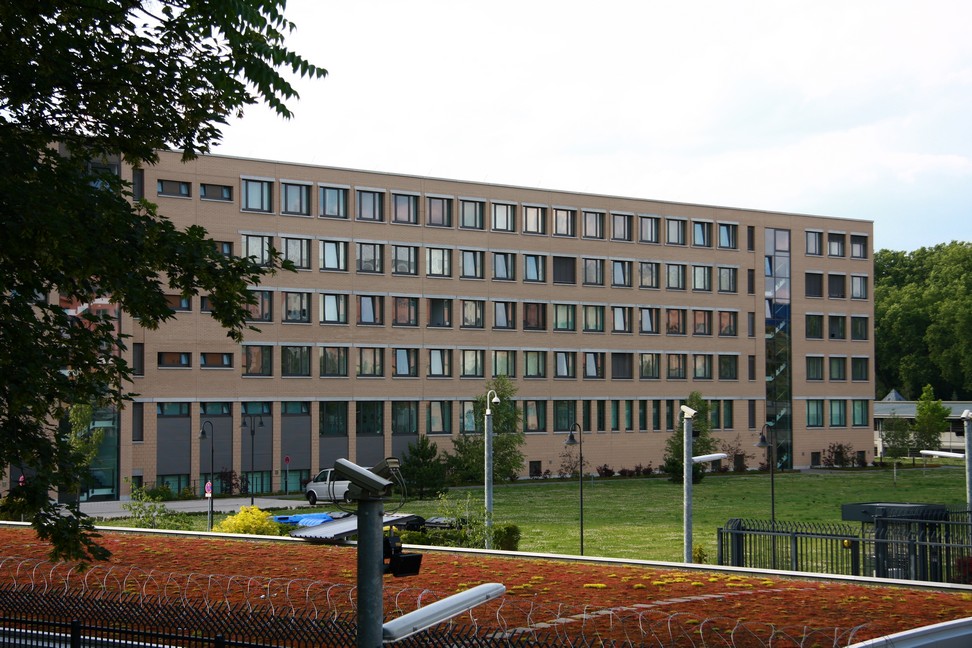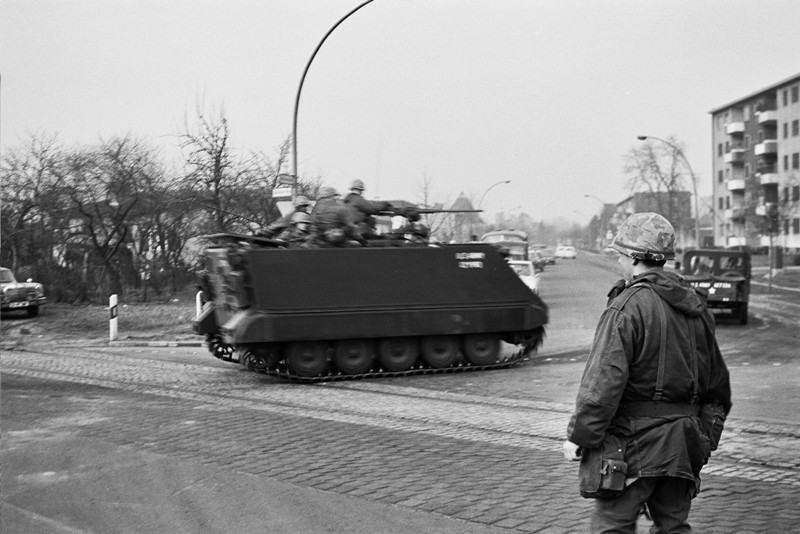|
Republicans (Germany)
The Republicans (, REP) is a National conservatism, national-conservative political party in Germany. The primary plank of the programme is anti-immigration, opposition to immigration. The party tends to attract protest voters who think that the Christian Democratic Union (Germany), Christian Democratic Union (CDU) and the Christian Social Union of Bavaria (CSU) are not sufficiently conservative. It was founded in 1983 by former CSU members Franz Handlos and Ekkehard Voigt, and Franz Schönhuber was the party's leader from 1985 to 1994. The party had later been led by Rolf Schlierer, until 2014. The Republicans had seats in the European Parliament between 1989 and 1994, Abgeordnetenhaus of Berlin, Abgeordnetenhaus of West Berlin in 1989–1990 and in the parliament of the German state of Baden-Württemberg between 1991 and 2001. The German Federal Office for the Protection of the Constitution between 1992 and 2006 said that the Republicans were a "party with partially extreme-right ... [...More Info...] [...Related Items...] OR: [Wikipedia] [Google] [Baidu] |
Christian Social Union In Bavaria
The Christian Social Union in Bavaria ( German: , CSU) is a Christian democratic and conservative political party in Germany. Having a regionalist identity, the CSU operates only in Bavaria while its larger counterpart, the Christian Democratic Union (CDU), operates in the other fifteen states of Germany. It differs from the CDU by being somewhat more conservative in social matters, following Catholic social teaching. The CSU is considered the ''de facto'' successor of the Weimar-era Catholic Bavarian People's Party. At the federal level, the CSU forms a common faction in the Bundestag with the CDU which is frequently referred to as the Union Faction (''die Unionsfraktion'') or simply CDU/CSU. The CSU has had 43 seats in the Bundestag since the 2021 federal election, making it currently the second smallest of the eight parties represented. The CSU is a member of the European People's Party and the International Democracy Union. Party leader Markus Söder serves as Mini ... [...More Info...] [...Related Items...] OR: [Wikipedia] [Google] [Baidu] |
Franz Handlos
Franz Handlos (born 9 December 1939 in Rusel, Bavaria, died 10 June 2013) was a German politician. Biography Handlos first came to prominence as member of the Christian Social Union of Bavaria (CSU), serving the party in both the Bundestag, where he represented Deggendorf, and the Landtag of Bavaria. Handlos, along with Ekkehard Voigt, represented the right of the party within the Bavarian CSU, with both men staunch critics of the leadership of Franz Josef Strauss. Handlos broke from the CSU in 1983 when Strauss agreed to accepting a major bank loan from East Germany, a move Handlos saw as accepting partition and helping to stabilise the communist state. As a result of the split, Handlos and Voigt joined with well-known political commentator and former CSU activist Franz Schönhuber to form their own party, Die Republikaner (REP) in 1983, with Handlos as the leader. Handlos saw the party as only slightly to the right of the CSU and aimed to REP as a basis to build a ''bundesweit ... [...More Info...] [...Related Items...] OR: [Wikipedia] [Google] [Baidu] |
2013 German Federal Election
The 2013 German federal election was held on 22 September to elect the members of the 18th Bundestag of Germany. At stake were all 598 seats to the Bundestag, plus 33 overhang seats determined thereafter. The Christian Democratic Union of Germany/Christian Social Union of Bavaria ( CDU/CSU) of incumbent chancellor Angela Merkel won their best result since 1990 with nearly 42% of the vote and nearly 50% of the seats, just five short for an overall majority. The Free Democratic Party (FDP) failed to meet the 5% vote electoral threshold in what was their worst showing ever in a federal election at the time, denying them seats in the Bundestag for the first time in their history. As the FDP, the CDU/CSU's junior coalition partner, failed to get any seats, any prospective government was required to be a coalition. The only possible coalition government excluding the CDU/CSU would have been a left-wing red–red–green coalition, since a red–green alliance, similar to the German ... [...More Info...] [...Related Items...] OR: [Wikipedia] [Google] [Baidu] |
Eastern Germany
The new states of Germany () are the five re-established states of the former German Democratic Republic (GDR) that unified with the Federal Republic of Germany (FRG) with its 10 "old states" upon German reunification on 3 October 1990. The new states, which were dissolved by the GDR government in 1952 and re-established in 1990, are Brandenburg, Mecklenburg-Western Pomerania, Saxony, Saxony-Anhalt, and Thuringia. The state of Berlin, the result of a merger between East and West Berlin, is usually not considered one of the new states although a number of its residents are former East Germans and some of its areas were in the former East Berlin. There have been 16 states in Germany since reunification. Demographics After the fall of the Berlin Wall, the former East German states experienced high rates of depopulation until around 2008. About 2,000 schools closed between 1989 and 2008, because of a demographic shift to a lower number of children. In 2006, the fertility rate ... [...More Info...] [...Related Items...] OR: [Wikipedia] [Google] [Baidu] |
South Germany
Southern Germany (, ) is a region of Germany that includes the areas in which Upper German dialects are spoken, which includes the stem duchies of Bavaria and Swabia in present-day Bavaria, Baden-Württemberg, and the southern portion of Hesse and Rhineland-Palatinate that were part of the Duchy of Franconia. German-speaking Switzerland, Austria, Liechtenstein, Alsace, and South Tyrol are also historically, culturally, and linguistically associated with the region. Boundaries Southern Germany primarily contrasts with Northern Germany and defines the territories of modern Germany that did not form part of the North German Confederation in the 19th century. Between Northern and Southern Germany is the loosely defined area known as Central Germany (''Mitteldeutschland''), roughly corresponding to the areal of Central German dialects (Franconia, Thuringia, Saxony). The boundary between the spheres of political influence of Prussia (Northern Germany) and Austria (Southern Germany) ... [...More Info...] [...Related Items...] OR: [Wikipedia] [Google] [Baidu] |
National Democratic Party Of Germany
National Democratic Party of Germany (, NPD), officially called The Homeland () since 2023, is a Far-right politics, far-right, Neo-Nazism, neo-Nazi and Ultranationalism, ultranationalist political party in Germany. It was founded in 1964 as successor to the Deutsche Reichspartei, German Reich Party (, DRP). Party statements also self-identified the party as Germany's "only significant patriotic force" (2012). On 1 January 2011, the nationalist German People's Union merged with the NPD and the party name of the National Democratic Party of Germany was extended by the addition of "The People's Union". As a neo-Nazism, neo-Nazi organization,* * * * "Verfassungsschutzbericht 2010" German Ministry of the Interior. p. 67. ("The ethnically homogeneous 'national community' represents the core element for them.") * John D. Nagle (1 December 1970). ''The National Democratic Party: Right Radicalism in the Federal Republic of Germany''. University of California Press. * Stephen E. Atkin ... [...More Info...] [...Related Items...] OR: [Wikipedia] [Google] [Baidu] |
Electoral Alliance
An electoral alliance (also known as a bipartisan electoral agreement, electoral pact, electoral agreement, electoral coalition or electoral bloc) is an association of political parties or individuals that exists solely to stand in elections. Each of the parties within the alliance has its own policies but chooses temporarily to put aside differences in favour of common goals and ideology in order to pool their voters' support and get elected. On occasion, an electoral alliance may be formed by parties with very different policy goals, which agree to pool resources in order to stop a particular candidate or party from gaining power. Unlike a coalition formed after an election, the partners in an electoral alliance usually do not run candidates against one another but encourage their supporters to vote for candidates from the other members of the alliance. In some agreements with a larger party enjoying a higher degree of success at the polls, the smaller party fields candidates ... [...More Info...] [...Related Items...] OR: [Wikipedia] [Google] [Baidu] |
Federal Office For The Protection Of The Constitution
The Federal Office for the Protection of the Constitution ( or BfV, often ''Bundesverfassungsschutz'') is Germany's federal domestic intelligence agency. Together with the Landesämter für Verfassungsschutz (LfV) at the state level, the federal agency is tasked with intelligence-gathering on efforts against the liberal democratic basic order, the existence and security of the federation or one of its states, and the peaceful coexistence of peoples; with counter-intelligence; and with protective security and counter-sabotage. The BfV reports to the Federal Ministry of the Interior and tasks and powers are regulated in the Federal Constitutional Protection Act (''Bundesverfassungsschutzgesetz (BVerfSchG))''. The last President was Thomas Haldenwang; he had been appointed in 2018 and left office in November 2024. The next president is supposed to be assigned by a new government following the 2025 German federal election. Overview Together with the Federal Intelligenc ... [...More Info...] [...Related Items...] OR: [Wikipedia] [Google] [Baidu] |
Baden-Württemberg
Baden-Württemberg ( ; ), commonly shortened to BW or BaWü, is a states of Germany, German state () in Southwest Germany, east of the Rhine, which forms the southern part of Germany's western border with France. With more than 11.07 million inhabitants across a total area of nearly , it is the third-largest German state by both List of German states by area, area (behind Bavaria and Lower Saxony) and List of German states by population, population (behind North Rhine-Westphalia and Bavaria). The List of cities in Baden-Württemberg by population, largest city in Baden-Württemberg is the state capital of Stuttgart, followed by Mannheim and Karlsruhe. Other major cities are Freiburg im Breisgau, Heidelberg, Heilbronn, Konstanz, Pforzheim, Reutlingen, Tübingen, and Ulm. Modern Baden-Württemberg includes the historical territories of Baden, Prussian Province of Hohenzollern, Hohenzollern, and Württemberg. Baden-Württemberg became a state of West Germany in April 1952 through ... [...More Info...] [...Related Items...] OR: [Wikipedia] [Google] [Baidu] |
West Berlin
West Berlin ( or , ) was a political enclave which comprised the western part of Berlin from 1948 until 1990, during the Cold War. Although West Berlin lacked any sovereignty and was under military occupation until German reunification in 1990, the territory was claimed by the West Germany, Federal Republic of Germany (FRG or West Germany), despite being entirely surrounded by the East Germany, German Democratic Republic (GDR or East Germany). The legality of this claim was contested by the Soviet Union and other Eastern Bloc countries. However, West Berlin de facto aligned itself politically with the FRG from May 1949 and was thereafter treated as a ''de facto'' city-state of that country. After 1949, it was directly or indirectly represented in the institutions of the FRG, and most of its residents were citizens of the FRG. West Berlin was formally controlled by the Western Allies and entirely surrounded by East Berlin and East Germany. West Berlin had great symbolic signi ... [...More Info...] [...Related Items...] OR: [Wikipedia] [Google] [Baidu] |
Abgeordnetenhaus Of Berlin
The of Berlin (House of Representatives) () is the state parliament ('' Landtag'') of Berlin, Germany according to the city-state's constitution. In 1993, the parliament moved from Rathaus Schöneberg to its present house on Niederkirchnerstraße in Mitte, which until 1934 was the seat of the Prussian Landtag. The current president of the parliament is Cornelia Seibeld ( CDU). History The was established by the new constitution of West Berlin in 1951. It replaced the former city legislature called ''Stadtverordnetenversammlung'' (city deputies assembly), established by the Prussian Reforms in 1808 and re-established by Allied-initiated state elections of 1946. Between 1951 and 1990 the was a parliament of restricted autonomy, since the Allied Control Council required that all its legislation and its elections, such as those of mayors and the senators (then still elected and not yet appointed by the mayor), be subject to Western Allied confirmation or rejection. Afte ... [...More Info...] [...Related Items...] OR: [Wikipedia] [Google] [Baidu] |
European Parliament
The European Parliament (EP) is one of the two legislative bodies of the European Union and one of its seven institutions. Together with the Council of the European Union (known as the Council and informally as the Council of Ministers), it adopts European legislation, following a proposal by the European Commission. The Parliament is composed of 720 members (MEPs), after the June 2024 European elections, from a previous 705 MEPs. It represents the second-largest democratic electorate in the world (after the Parliament of India), with an electorate of around 375 million eligible voters in 2024. Since 1979, the Parliament has been directly elected every five years by the citizens of the European Union through universal suffrage. Voter turnout in parliamentary elections decreased each time after 1979 until 2019, when voter turnout increased by eight percentage points, and rose above 50% for the first time since 1994. The voting age is 18 in all EU member states e ... [...More Info...] [...Related Items...] OR: [Wikipedia] [Google] [Baidu] |





